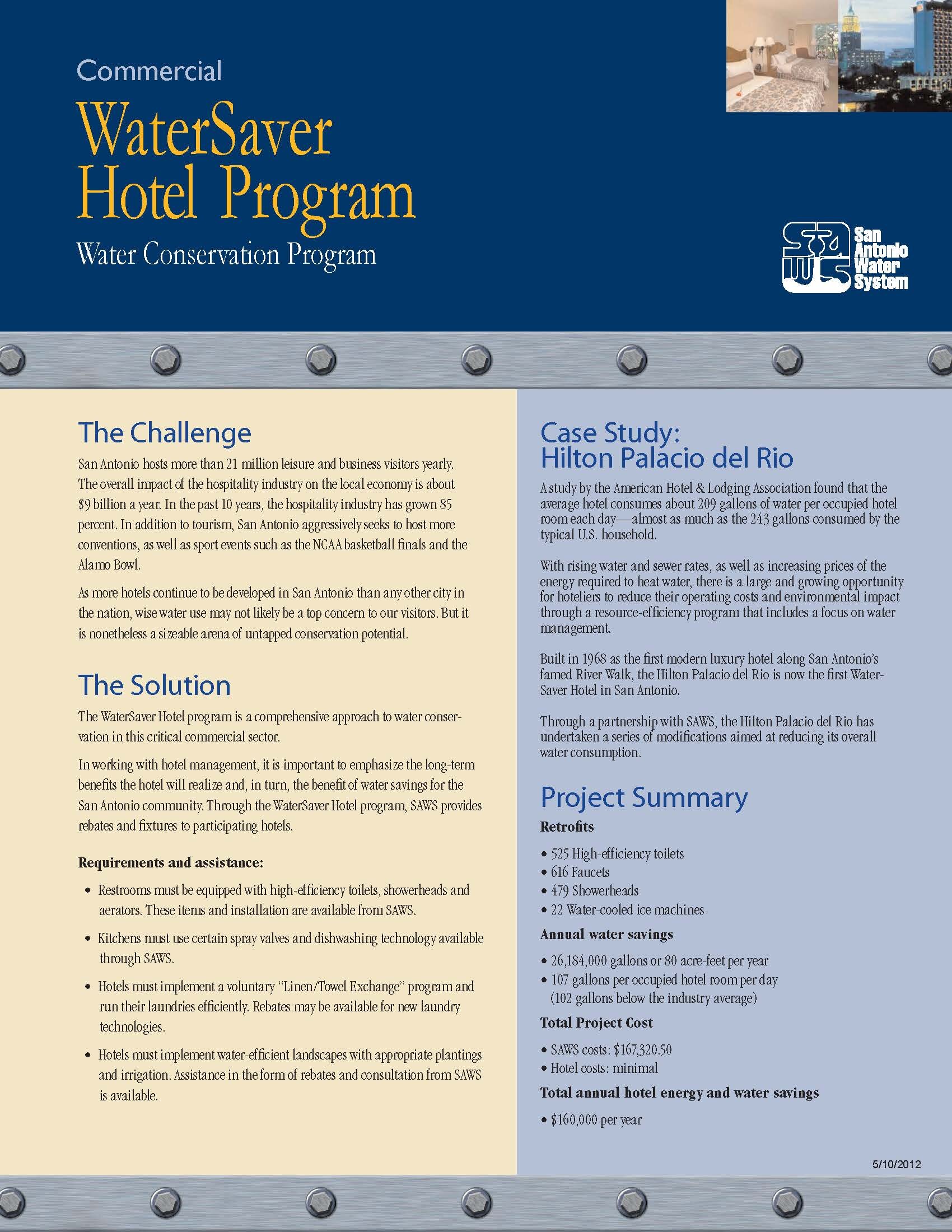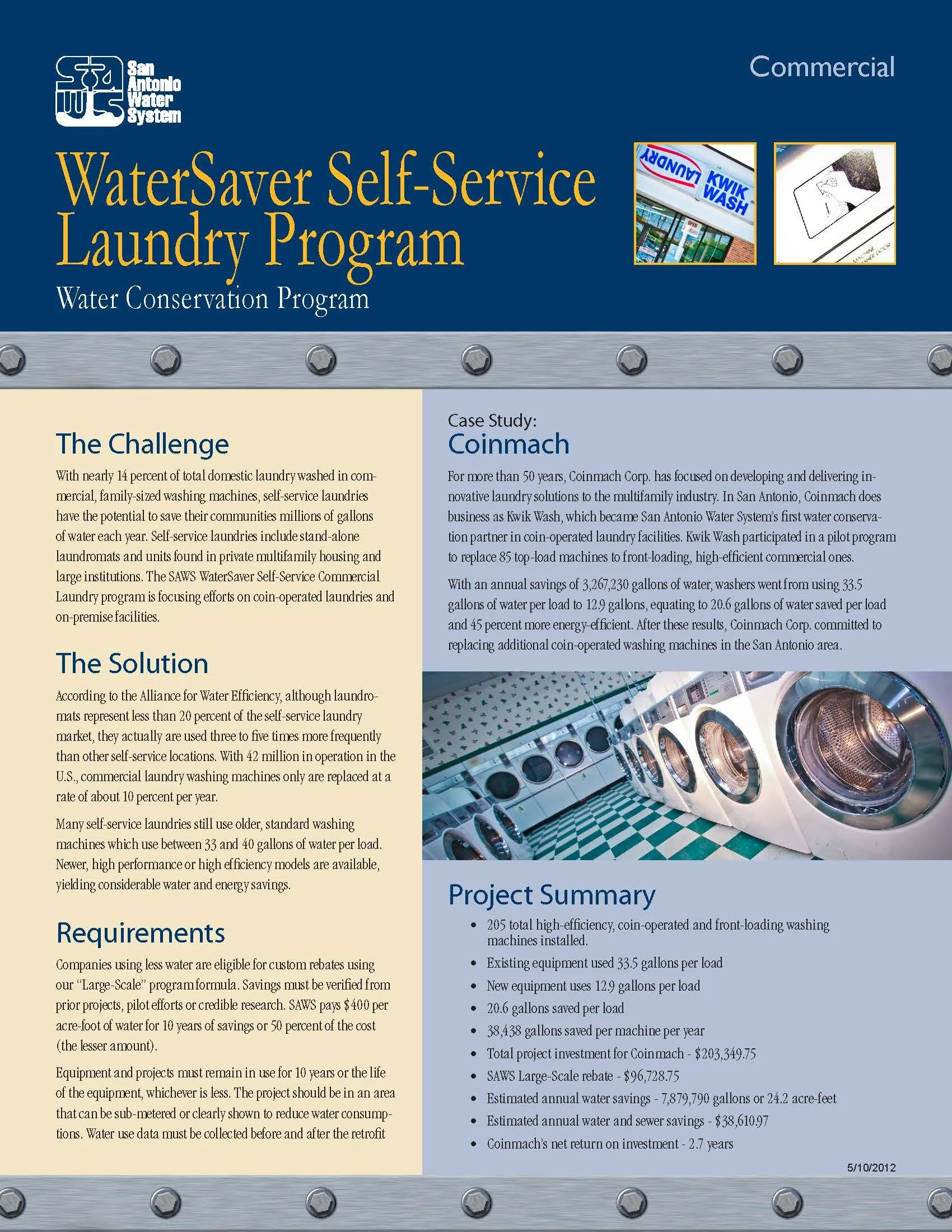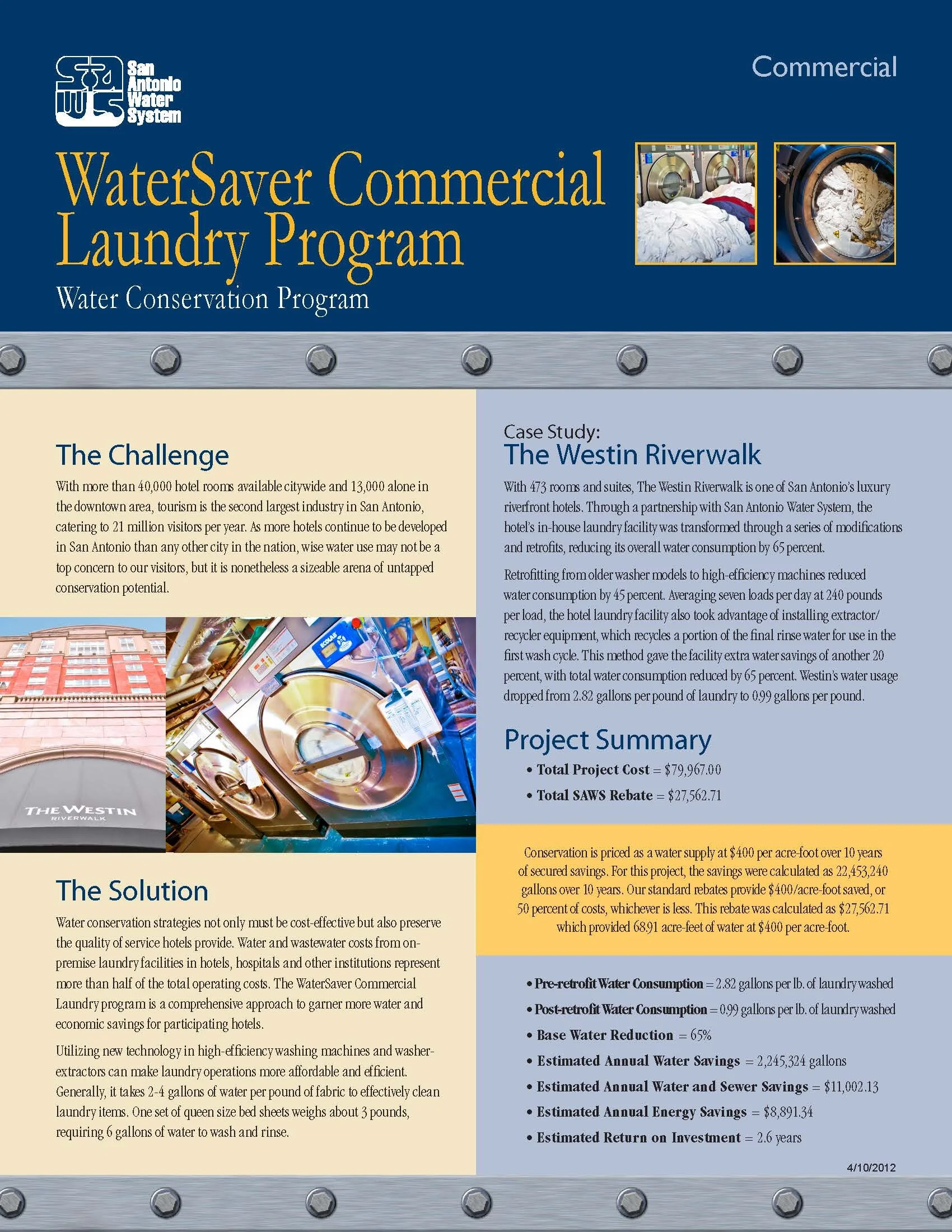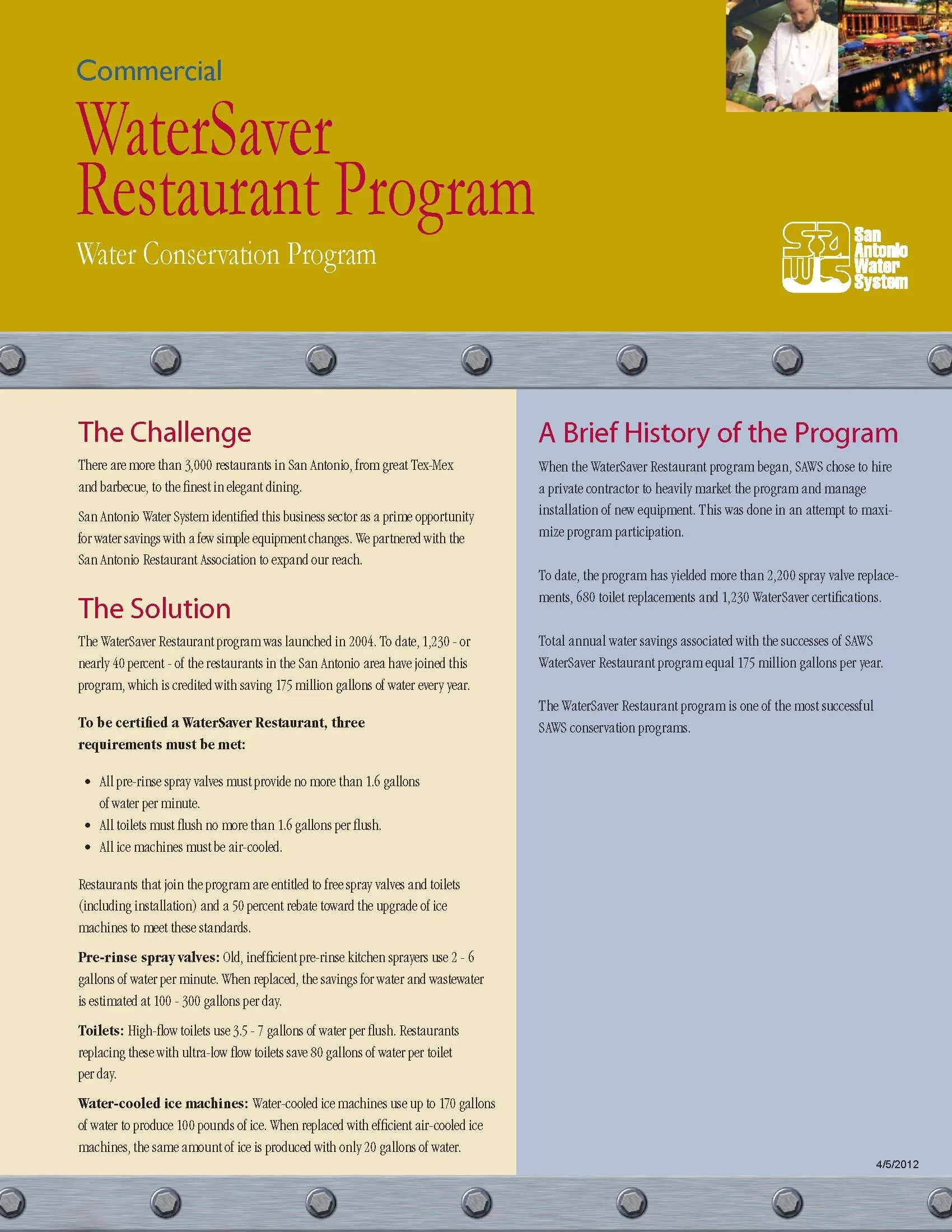This one-pager describes San Antonio Water System's rebate program for outdated, inefficient swimming pool filters.
Read MoreThis one-pager describes San Antonio Water System's outreach programs and efforts to reduce landscape water use, including a case study from the San Antonio Botanical Garden.
Read MoreThis one-pager describes San Antonio Water System's program to reduce water use in local hotels.
Read MoreThis one-pager describes San Antonio Water System's custom rebate programs for self-service (coin-operated and on-premise) laundry facilities, including a case study from a local laundry facility.
Read MoreThis one-pager describes San Antonio Water System's commercial laundry rebate program, including a case study from a local hotel.
Read MoreThis one-pager describes San Antonio Water System's use of custom commercial rebates in a food manufacturing plant.
Read MoreThis one-pager describes San Antonio Water System's program to reduce water use in local restaurants.
Read MoreThis report presents the results of a study to identify and evaluate potential methods to assist the Texas Water Development Board and individual municipal water providers in evaluating the actual water savings being achieved by municipal water conservation efforts.
Read MoreThis publication describes the purpose and role of groundwater conservation districts in Texas.
Read MoreThis publication describes the science of groundwater in Texas, Texas groundwater law, and the roles and responsibilities of groundwater conservation districts.
Read MoreThis publication reviews outdoor water use in 18 Texas cities in recent years to create a better understanding of outdoor water use and to examine how we might become more efficient in that use.
Read MoreThis publication describes seven ways for Texas cities to conserve water and analyzes statewide progress for each.
Read MoreThe Great Plains region of the United States is characterized by a significant dependence on agriculture; specifically irrigated agriculture. The regional economic dependence on irrigated agriculture and the decline of the Ogallala Aquifer due to agricultural pumping have been much of the basis for the relatively recent governmental interest in developing policy alternatives for conserving water in the aquifer. The objectives of this study were to analyze and evaluate the outcomes of specified water conservation policy alternatives on the Ogallala Aquifer underlying the Southern High Plains of Texas and Eastern New Mexico using non-linear optimization models. Results indicate that due to varying land use and hydrologic conditions in the Ogallala Aquifer, blanket water conservation policies will likely be inefficient.
Read MoreThis one-pager provides a simple list of instructions for people to save water at home.
Read More













